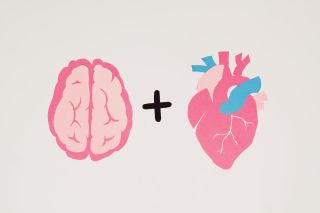Emotional Intelligence
Some Insights Into the Essence of Emotions
Here's how to reevalute their role in our lives.
Updated January 16, 2024 Reviewed by Ray Parker
Key points
- Emotions should not longer be regarded as mere sensations.
- Emotions are essential for survival and decision-making.
- Emotions and rationality work together to help us perceive reality and make decisions.

Life is full of challenges, and we all intrinsically or vividly experience many emotions throughout the day.
Factually, we consciously or unconsciously are guided by our internal states that may vary according to the external stimuli we perceive from the outward world.
Goleman (1995) states that emotions are instant plans for handling life that evolution has instilled in us. These tiny instincts hint at what direction to take and how to respond to an external situation.
In our emotional repertoire, emotions are usually classified into two opposite poles, namely:
- Positive emotions, like joy, happiness, delight, glee, etc., and
- Negative emotions, like sadness, irritation, anger, rage, wrath, etc.
Positive emotions happen when the external situation is favorable for the organism's survival.
Negative emotions occur in a dangerous or threatening situation for the organism.
At first sight, it might seem that negative emotions are something to get rid of, whereas in real life, they also, as positive emotions, serve as a compass guiding us in our everyday tasks (Rostomyan, 2022).
Much debate has been about whether we perceive reality based on emotions or rationality. Though the answer is quite visible for science today, there have been heated conversations behind the scenes for centuries before coming up with a specific solution.
So, back in the 16th century, sensualists like John Locke were convinced that emotions are the source of wisdom. In contrast, rationalists like Gottfried Wilhelm (von) Leibniz held the opposite stance, claiming that emotions hinder the sourcing of wisdom and blur the image. Therefore, they firmly believed that rationality is the only means of gaining an absolute picture of the outward reality.
Later, in the 18th century, Immanuel Kant resolved the dispute and concluded that both theories have their reason and only the combination therein can answer the vital question of what is the most important in dealing with life.
In essence, emotions always tend to secure a good life for us. In contrast, reason serves as a moderator in boosting and endorsing certain emotions. According to Goleman (1995), we have two interrelated minds, namely the emotional mind and the rational mind, which continually interact with one another, providing significant information to each other.
According to my central hypothesis (Rostomyan 2013), emotions and rationality make up the basis of our higher cognitive processes and can no longer be mere sensations as before. In fact, according to my research, emotions are almost always intermingling with our rationality and have a significant impact on our decision-making processes, even in such matter-of-fact sectors as the banking and legal systems.
This said, let us reevaluate the immense role that emotions undoubtedly play in our lives and give them their deserved credit in guiding us in the labyrinth of life. It is also highly pivotal to highlight that relying all the time only on emotions may leave out a great deal of significant information and vice versa.
Paying attention and being guided merely by the brain's rational part may miss chunks of sensitive information, which is also paramount in making conclusions.
Therefore, as simple as it may seem, balance is the key.
References
1. Goleman, Daniel (1995). Emotional Intelligence: Why It Can Matter More Than IQ. New York: Bantam Books.
2. Rostomyan, Anna (2022). The Ultimate Force of Emotions in Communication: A Linguo-cognitive Analysis of Verbal and Non-verbal Expressions of Emotions (on the Material of English). Shaker Verlag: Düren.
3. Rostomyan, Anna (2013). https://www.researchgate.net/publication/312951427_Emotion_Management_T…


